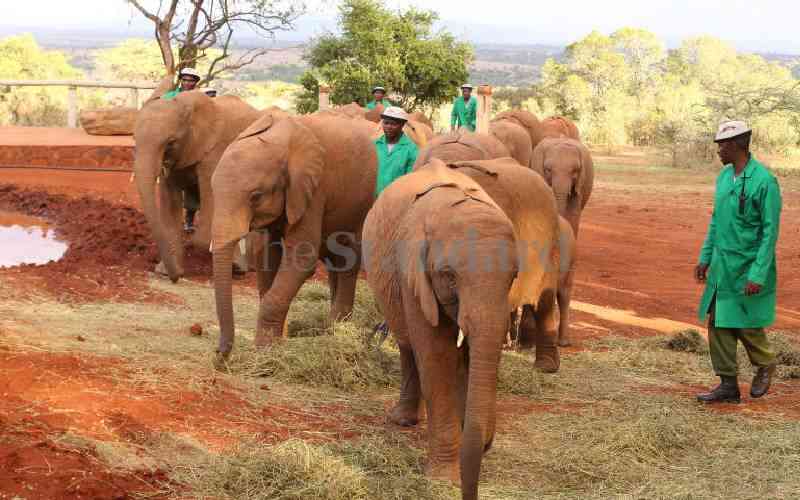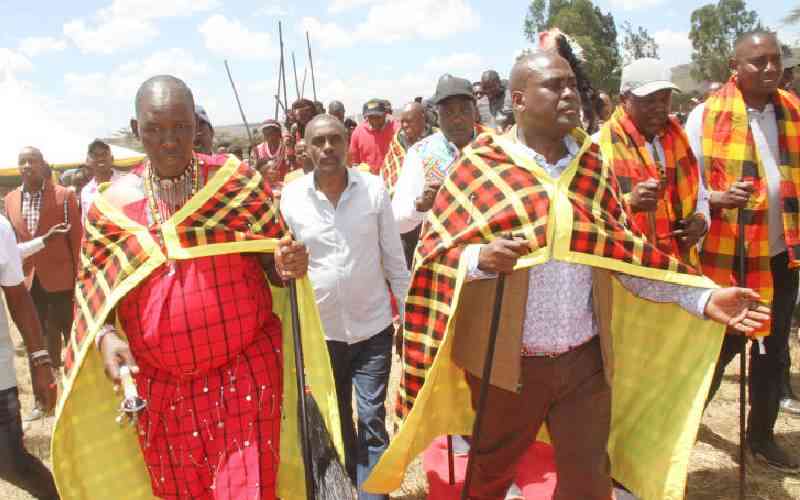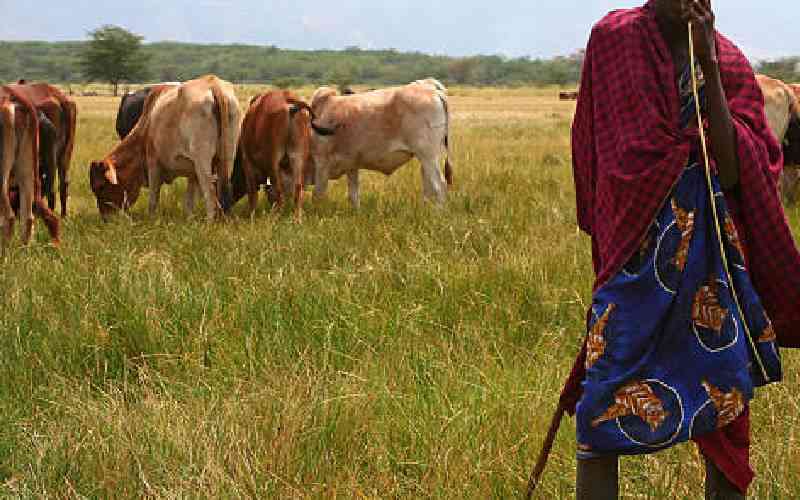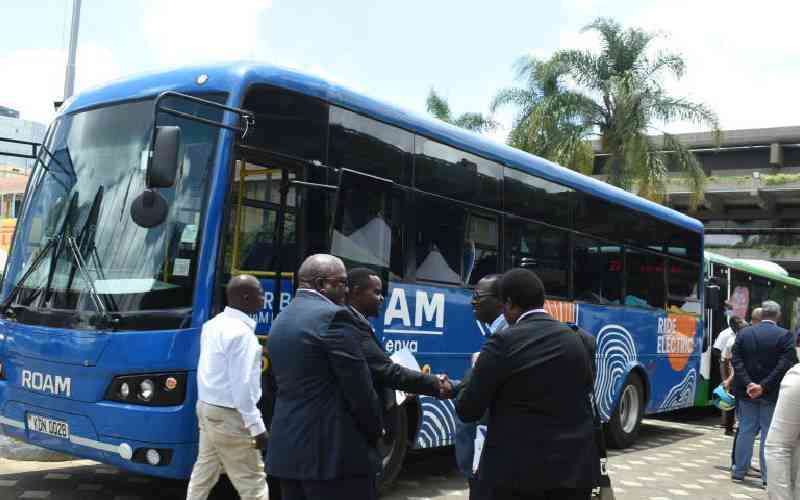At the tender age of eight, I had to escape from home to avoid being circumcised.
Among the Maasai, Female Genital Mutilation marks the transition from childhood to adulthood, setting the stage for early marriage. For me, this was unacceptable.
Despite several beatings, I stood my ground and refused to be circumsised even when they told me that all girls had to undergo this rite of passage.
With time, I eventually convinced my grandfather, a Maasai Elder, to allow me skip the rite and continue with my studies.
Sadly, my struggles dim in comparison to the hundreds of thousands of harrowing stories told by women and girls who underwent the cut.
Lifelong conditions
After the cut, these women continue to suffer in silence as they live with the repercussions of FGM. Girls as young as six years are scarred for life as they end up with lifelong conditions that often endanger their lives.
In Kenya, it is estimated that 100,000 girls undergo FGM every year. In my community, FGM is directly linked to marriageability and is typically carried out on young girls below the age of 15 to make them eligible brides.
The cut causes serious medical complications, such as extreme pain, excessive bleeding, infections, maternal and new-born complications, and sometimes death.
Those who undergo FGM are not able to enjoy family life as sexual relations with their partners are often a painful and unenjoyable experience.
Gender inequality
This practice perpetuates a vicious cycle of gender inequality which the world targets to end by 2030 through Sustainable Development Goal 5, which is to achieve global equality and empower all women and girls.
Over the past decade, sustained advocacy by a cross-section of donors, development agencies, NGOs and governments has helped raised global awareness on the negative effects of FGM.
Thanks to this awareness, FGM is now criminalised in most countries around the world. Perpetrators risk significant jail time, including life imprisonment in Kenya, Uganda and Guinea.
Legal and policy interventions alone are not a sufficient deterrent for FGM. As a rite of passage, FGM carries a customary significance that can only be addressed by fully involving communities that hold this rite.
Stay informed. Subscribe to our newsletter
In many such communities, the key to change lies in transforming the perceptions and attitudes of cultural gatekeepers such as elders and traditional healers.
In my work with Amref Health Africa, we have deliberately involved cultural gatekeepers of local communities in efforts to end FGM.
This model has produced commendable results and can serve as a blueprint for ending FGM around the world.
Our approach is founded on the understanding that lasting and sustainable change in the eradication of FGM must first and foremost come from, and be led by the communities themselves.
Cultural significance
Understanding the cultural significance of upholding rites of passage has enabled host communities take up an Alternative Rite of Passage (ARP), which retains all the cultural celebrations surrounding a girl’s transition to womanhood but without the cut and early marriage.
Alternative Rite of Passage offers training that sensitises local communities on the dangers of FGM, building consensus toward a collective decision to abandon it.
The new ritual combines the traditional ceremony with sexual and reproductive health education, and the promotion of girls’ education.
The ARP ceremony is marked by two days of lessons on community values and traditions, sexuality and sexual health issues, and life skills.
In just under a decade, 15,000 girls in the Maasai and Samburu communities have gone through the ARP programme.
This would not have been possible if cultural decision-makers and community gatekeepers did not take ownership and leadership of the fight against FGM.
Though the tide is turning, more needs to be done to curb the prevalence of FGM across various communities.
The ARP model serves as a compelling example of what we can achieve by empowering local communities to take an active role in the war against FGM.
This holiday season, cultural elders in Loitoktok, Kajiado County, will once again come out in support of girls who opted to forego traditional female circumcision as a rite of initiation into womanhood.
ARP is proof that local communities can reshape their own destiny.
Ms Nailantei is Amref Health Africa’s Global End-FGM Advisor and a champion against female genital mutilation. Ms. Leng’ete was named to the TIMES 100 list of the world’s most influential people.
 The Standard Group Plc is a
multi-media organization with investments in media platforms spanning newspaper
print operations, television, radio broadcasting, digital and online services. The
Standard Group is recognized as a leading multi-media house in Kenya with a key
influence in matters of national and international interest.
The Standard Group Plc is a
multi-media organization with investments in media platforms spanning newspaper
print operations, television, radio broadcasting, digital and online services. The
Standard Group is recognized as a leading multi-media house in Kenya with a key
influence in matters of national and international interest.
 The Standard Group Plc is a
multi-media organization with investments in media platforms spanning newspaper
print operations, television, radio broadcasting, digital and online services. The
Standard Group is recognized as a leading multi-media house in Kenya with a key
influence in matters of national and international interest.
The Standard Group Plc is a
multi-media organization with investments in media platforms spanning newspaper
print operations, television, radio broadcasting, digital and online services. The
Standard Group is recognized as a leading multi-media house in Kenya with a key
influence in matters of national and international interest.








